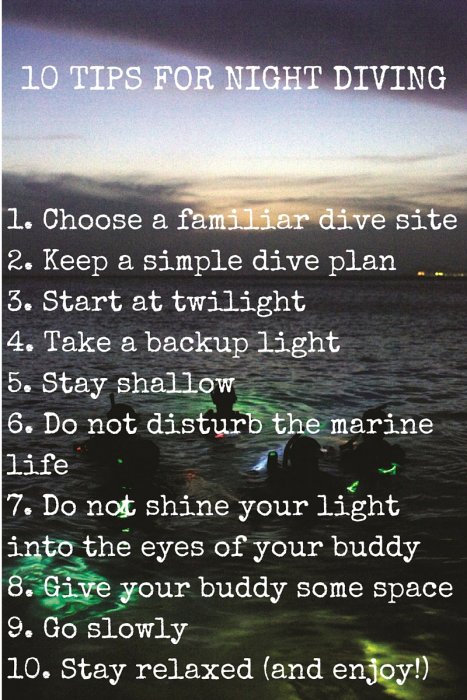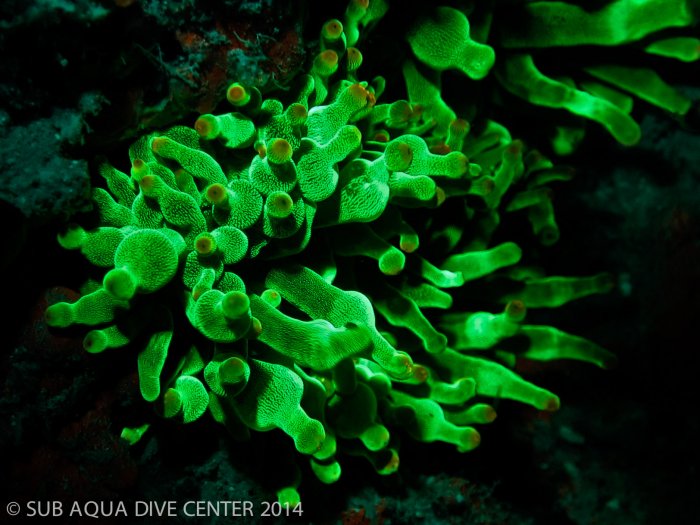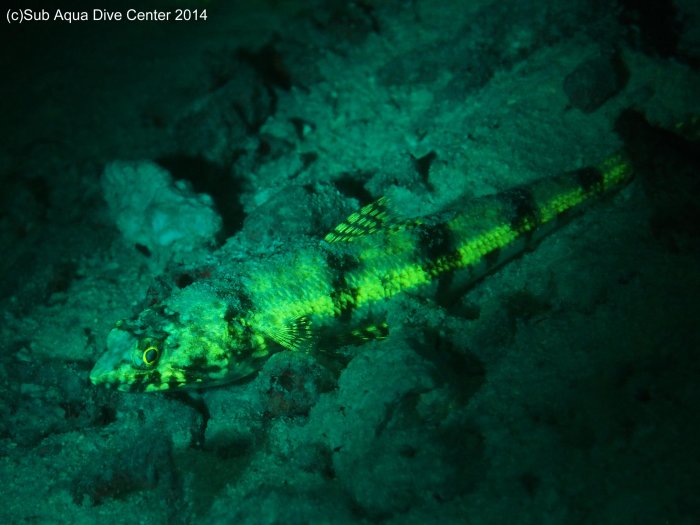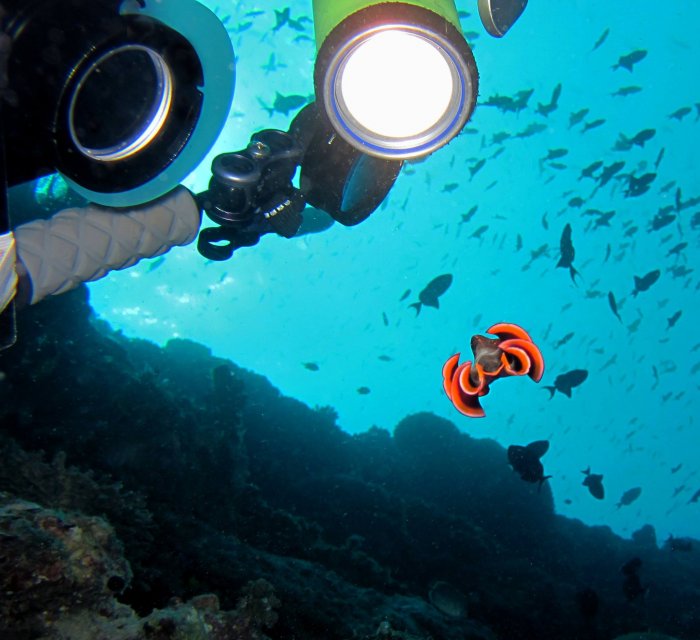10 Night Diving Tips
2017-02-01 12:19:00

10 tips for night dives
Night dives. You either love them or you hate them. We have made it easier with these
10 night diving tips for beginner night divers, or for those who may be scared of night diving. If you remember these
10 night diving tips you will soon find there is nothing to be afraid of. These tips will also help you be of the least disturbance to the underwater night environment as possible.
1. Choose a familiar dive site
Absolutely! A night dive is not the time to try new things or new surroundings. A familiar dive site means you get to see a dive site you have dived before but in a whole new light; your torch light. You will see the fish you saw during the day settling down to sleep in the corals and hiding places. You will see new nightly creatures emerging that you did not know inhabited that dive site. You will see the true colours of the corals. Red for example, cannot be seen underwater at depths below 10 metres, unless under torch light. The same dive site can give you a totally different diving experience after dark.
2. Keep a simple dive plan
You never need to complicate a dive plan but it should definitely be avoided at night time. A simple dive plan should mean that you can easily navigate back to your entry/exit point. In general, dive boats do not move around at night for very good reason and just as with shore dives you don't want to ascend from your dive miles from the shore, with night dives from a boat you don't want to ascend miles from the boat. Long surface swims are no fun for anybody, especially at the end of a dive and in the dark!
3. Start at twilight while you can still see
Especially in the tropics (for example
Maldives and
Thailand) the sun sets very quickly so it is much easier to take to the water at twilight and descend into near-darkness, knowing it will soon be a 'proper' night dive, rather than attempt a descent in total darkness. It also makes gearing up and any final equipment checks much easier, making for a more relaxing start to the dive.
4. Take a backup light
This is stating the obvious but it is surprising how many divers think one light is enough! Even if you are totally confident in your main light, take a backup. There is always that 'first time' and it is much better to simply switch to a backup when your main light fails so you know you can reach the exit point safely and still being able to see.
5. Stay shallow
Often when you make a night dive, you have already been diving earlier in the day. There is absolutely no reason to dive deep for a night dive. Usually a maximum depth for a night dive is around 15 metres and even then most of the dive will be in the 5-10 metre range. It is much safer to stay shallow and also there is plenty to see by staying shallow on the reef at night. Don't take unnecessary risks by diving deep at night.
6. Do not disturb the marine life
This is really important. When you go to sleep at night, you do not wish for somebody to wake you up by beaming a bright torch light in your eyes! Fish have the same wishes. Also there are added dangers for fish. I mean, if you are woken by a light in your eyes in the middle of the night, chances are you will not get eaten! This is not the same for fish. Parrot fish for example cocoon themselves in a bubble of mucus to protect them at night. If you wake them with your torch light, this mucus protection is broken and as they swim blindly in the darkness, it is very likely that a night-time-hunting barracuda will come along and have parrot fish for supper!
Turtles also become startled if you wake them at night and you can literally scare a turtle to death with your torch light so please be respectful and direct the main beam of your torch light away from the eyes of marine life. You will still see the turtle or the fish in the ambient light of your torch.
7. Do not shine your light into the eye of your buddy
Seriously. You should make a conscious effort to make sure you are not shining your torch light in the eyes of other divers. Not only is it irritating when somebody does not take care of where they are shining their torch beam, but also, if you shine your light in the eye of your buddy, they will forever have a small white light in the corner of their vision for the rest of the dive, even after you have turned your light away. Looking for your buddy? Shine your torch light on their fins to identify them!
8. Give your buddy some space
... and hopefully they give you space too! You will see their torch light and you can locate them by their torch light so it is not necessary to be on top of them, or in direct contact with them for the whole dive. All that happens if you are too close is somebody will lose a mask, or a regulator, or similar as the other kicks with their fins; not on purpose but because you were too close!
9. Go slowly
You should go slowly when you dive anyway because moving quickly just uses up your air more quickly than if you dive relaxed. During a night dive this is even more important; not only for better air consumption but also because you can only see what is in your torch beam so take the time to look for the weird and wonderful small creatures that emerge after dark. If you dive too quickly, you will miss the best and you will use your air more quickly.
10. Stay relaxed and enjoy
Again, go slowly! Stay relaxed and your night dive will be much more enjoyable. Concentrate on slowly exploring the reef. You will be amazed when you shine your torch into the corals and lots of small eyes twinkle back in your torch light; all the shrimps you missed during daylight are out dancing in your torch light at night!
More information about
diving packages in Maldives and
Thailand.
Join us for a night dive! Also, we now have
FLUO-dives at our Maldives dive centers to completely transform your night dives (see photos below). Remember your
10 night diving tips!

Anemone FLUO diving

Lizard fish on FLUO-dive

Night photography scuba



 Anemone FLUO diving
Anemone FLUO diving Lizard fish on FLUO-dive
Lizard fish on FLUO-dive Night photography scuba
Night photography scuba